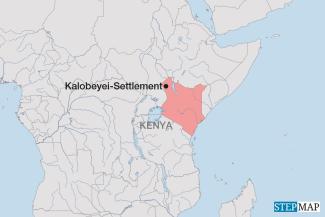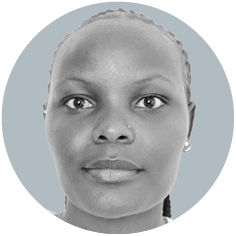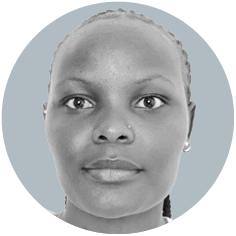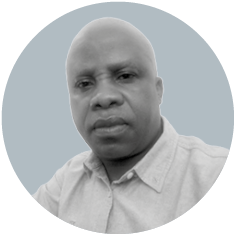Hardship
Living as refugee in Kenya

Many South Sudanese refugees have found shelter in neighbouring Kenya. One of the most popular landing points for these refugees has for long been Kakuma refugee camp. It is one of the largest refugee camps in the world. In 2014 however, this refugee settlement reached full capacity.
As Kenya continued to receive more refugees, the national government together with the county government of Turkana decided it was time to devise a solution. It has now been seven years since the Kakuma refugee camp was extended into a new area: the Kalobeyei settlement.
The Kalobeyei settlement was established in partnership with the UN Refugee Agency (UNHCR). Since then, Kalobeyei has rapidly grown and has even more social services such as hospitals and schools than Kakuma. Three villages are now permanently housing at least 40,000 displaced persons from South Sudan.
The Kalobeyei settlement is special because it was particularly established with the aim of promoting self-reliance. There is hope that refugees can integrate into the host community and coexist with them.
Together with civil-society organisations, the government and other partners support refugees in Kalobeyei to engage in productive activities such as dry land agriculture. Through this, they can harvest crops and make a living.
The permanent shelters in Kalobeyei are well lit with accessible electricity for 24 hours. These are notable improvements mostly made by the UNHCR. Kakuma on the other hand has houses made of iron sheets or mud and no electricity, therefore only few people have access to power through the installation of solar panels.
Margaret Natepi, a businesswoman that runs a minimart, is among the 70 % of refugees from South Sudan who have been living in Kalobeyei since 2016. She lives with her four children. Natepi lost everything when a series of clashes erupted in Juba between troops loyal to the president and the vice-president. “During that period, I feared most for the lives of my children. To protect them, I fled to Kenya with my family,” she recalls.
She says that adjusting to the new environment has not always been easy. But with time, she has learnt to accept and celebrate her little achievements. She deems herself lucky to be living in the Kalobeyei extension area where she gets privileges, such as access to markets and good roads that have contributed positively to the growth of her small business.
Natepi adds that she is proud of her ability to provide quality education for her children who attend an affordable private school in the settlement. She uses money from her business to pay their tuition fees. “I cannot compare my life in Juba with Kalobeyei, but I am utmost happy because there is peace and I own a place I can call home.”
Alba Nakuwa is a freelance journalist from South Sudan based in Nairobi.
albanakwa@gmail.com













